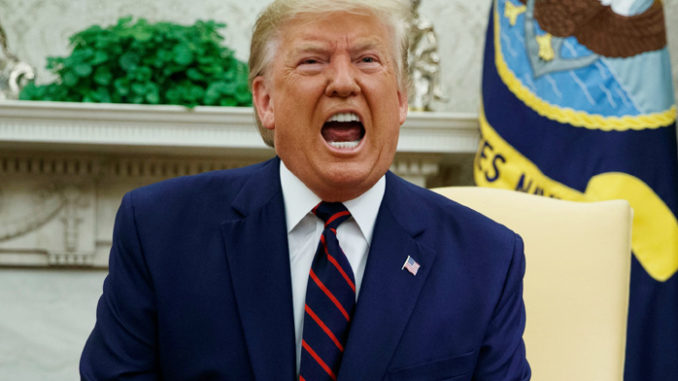

By assaulting U.S. democracy in so many ways, Trump has shone a light on its weaknesses. We should seize this moment to strengthen our institutions. That way, if another Trump-like politician (or Trump himself in four years) tries to pervert the system again, American democracy will be better equipped to withstand it. We need a set of post-Trump reforms to bolster U.S. democracy. Independent, nonpartisan boards should be established to manage elections rather than partisan officials. Standardized rules should be set about voter registration, mail-in voting, ballot challenges and the reporting of results.
It is much too soon to be thinking about a post-Trump America. President Trump remains the most popular figure among Republicans, and he will continue to play a huge role in U.S. politics in the years to come. But it is not too soon to begin thinking about a post-Trump democracy — a political system that learns from the challenges and threats it has endured over the past four years. To those who think this concern is overblown, that America has proved resilient, I would simply say, “Look out the window.” Even now, the president of the United States is attempting to use the powers of his office and public platform to overturn the results of an election. Happily, Trump’s efforts have not borne fruit. The courts have refused to bend the rules; even Republican-appointed judges have followed the law rather than their political party of choice. Local officials did their job.
All of this is encouraging. Even so, this past month has exposed fundamental weaknesses in America’s electoral system.
American elections are mostly run not by apolitical federal officials but rather by local politicians. Elected or appointed representatives of both parties monitor elections and must collectively sign off on them. The system has worked because both sides have upheld their duty to certify election results that were free and fair, no matter the winner. But in this election, the Republican Party – the president, the party’s national chair, key senators and state party bosses – put unrelenting pressure on these local officials to delay or reject the routine certification of results. In Georgia, the state’s two current Republican senators called on Secretary of State Brad Raffensperger to resign because he affirmed that the state’s vote was free and fair. In Michigan, arty officials hounded the two Republicans on the four-person Board of State Canvassers that certifies the state’s results. In the face of this assault, one of the two folded. It was only because the other Republican, 40-year-old Aaron Van Langevelde, stood his ground that Michigan’s results were certified. (President-elect Joe Biden won by more than 150,000 votes.)
And remember, the story is not over yet. In all likelihood, Trump will keep up his attacks on those Republican officials in the key swing states who refuse to do his bidding. If Raffensperger and Van Langevelde are drummed out of politics, the message to Republican officials in the next close election will be clear: Put party over country or you can say goodbye to your career. The next set of local officials might prove to be less honorable. So might a younger and more partisan batch of judges. America’s election arrangements are rooted in a venerable Anglo-Saxon system in which citizens or private groups are periodically called upon to perform official functions. The Anglo-Saxon approach contrasts with the French continental system in which the state has more control. But the Anglo-American system depends on the idea that these citizens will place the public interest ahead of their private interest. Trump has put that assumption to the test, plunging our democracy into crisis.
We need a set of post-Trump reforms to bolster U.S. democracy. Independent, nonpartisan boards should be established to manage elections rather than partisan officials. Standardized rules should be set about voter registration, mail-in voting, ballot challenges and the reporting of results.
We also need a broader set of reforms that draw on the experience of the Trump years, ones that codify into law what have been traditions and practices. Candidates should have to disclose their tax returns so that the public can be aware of any potential conflicts of interest. Winners must be required to place any of their businesses or assets into genuine blind trusts. Additionally, we can now see that the lag between the election and inauguration is much too long — far longer than most other countries — and that the incumbent enjoys far too much power during this period. The Trump administration has made the dangers clear by initially withholding funds for the transition and refusing to provide intelligence briefings to Biden. Laws should be written to ensure a smooth transition and minimize the possibility that the outgoing president can act to enhance his personal fortunes and cripple his successor. By assaulting U.S. democracy in so many ways, Trump has shone a light on its weaknesses. We should seize this moment to strengthen our institutions. That way, if another Trump-like politician (or Trump himself in four years) tries to pervert the system again, American democracy will be better equipped to withstand it.
(Fareed Zakaria is a columnist)
(Source: The Washington Post)





Be the first to comment